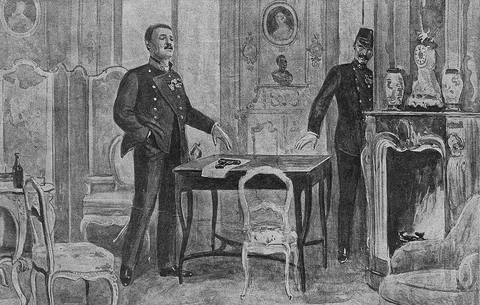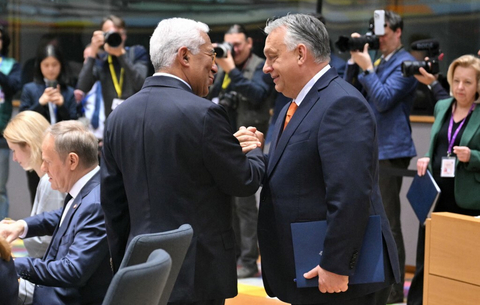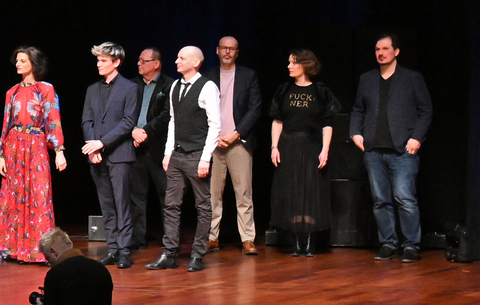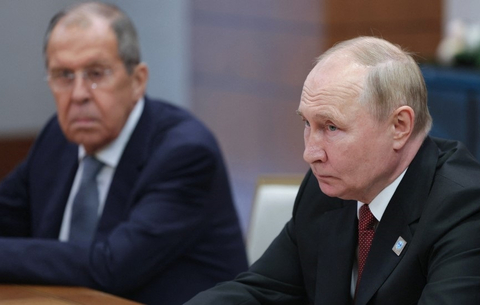Not as simple as it looks
Buy two, get one three – the appointment of new health and environment ministers means a new parliamentary commissioner may also follow in the wake of the reshuffle. The prime minister is nonetheless reluctant to contemplate a radical reshaping of the cabinet.
For a decade, Hungary's environment ministry has been in the hands of a party that believes there is no particular reason to have a free-standing ministry in charge of the matter – this, at least is what the Free Democrats said in their 2006 manifesto. Further, the man in charge of environmental affairs is the liberal MP who has been saying for years that his party made a mistake by accepting the politically inconsequential environmental portfolio.
More paradoxes are to come. Gabor Fodor, who will serve as environment minister, has set as a condition of service that his party throw its weight behind the setting up of an environmental protection agency – something he personally opposed for many years. Now, however, he is the driving force, trying to persuade the entire coalition that the country needs a new ombudsman tasked with overseeing the environmental protection bureaucracy.
Fodor, who campaigned unsuccessfully to lead the Free Democrats under the slogan "trustworthiness" cannot be accused of rushing to take on his first post in 12 years. Agnes Horvath, the new health minister, swore her oath of office on Monday. Fodor, who was nominated at the same time, will only assume office in the second week of May. The chair of the parliamentary environment committee denied Fodor's claims that the committee was only prepared to hold hearings on the ministerial candidate this Wednesday. Katona Kalman, the committee's MDF chair, said: "The committee can ask anyone to testify at any time.
The prime minister has not asked us to do anything." Kalman appeared to admit that events had piqued his curiosity as well. "I have tried to serve my people informally, of course, and I offered to hold the hearing on Saturday, 21 April and Monday, 23 April. But the response was that 25 April would be the perfect time."
Following in the footsteps of Laszlo Kovacs, Balint Magyar, Peter Kiss and Istvan Hiller, Fodor is the fifth Hungarian minister since 1990 to rejoin the cabinet after a lengthy break. His predecessor, Miklos Persanyi, sank in the ministry's bureaucratic mire. Fodor will only be successful if he is able to use his political capital to stop the environment ministry from being the last in the queue for budget allocations and make some progress at last in building flood defenses along the River Tisza. Fodor also has to put a stop to a curious situation where the average Hungarian voter is more likely to learn about global warming and its effect on Europe from Al Gore than from the country's own environment minister. To do this, Fodor will have to distance himself from his own past. He must appear as something other than a man who avoids conflict and communicates poorly – a reputation he earned for himself during his last ministerial stint in the mid-1990s.
The second Gyurcsany government's first reshuffle could be a salutary lesson for the party's newly elected leader as well. Last week, Janos Koka made the mistake of not agreeing with the party's executive committee on the person of his nominee for health minister. Attila Erdos, who runs the company Genoid Kft, could probably have survived his encounter with the committee if Koka had taken it to the wire. But more conflicts would have followed. HVG understands senior civil servants at the health ministry were planning to resign if Agnes Horvath was not appointed minister. Koka eventually left the decision to the committee, which opted for Horvath.
Both Koka and Fodor have a stable group of supporters inside the committee. So far, at least, there have been few signs of conflict.
The balance of power is held by four politicians who are not associated with either man's camp. Gabor Demszky, Peter Gusztos, Leonard Weinek and Tamas Wittinghoff are all trying to stake out independent positions, standing apart from the committee's two rival fractions. Some claim, however, the Demszky, the mayor of Budapest, is trying to set himself up as a third pole of influence. Demszky's declaration of support for Horvath last Tuesday was a sign of this happening.
This government's first reshuffle is not what people were expecting.
The prime minister did not decide to split the Ministry for Justice and Order in two, even though many in both governing parties would like to see this happen, and Gordon Bajnai, governmental commissioner for development, was not promoted to minister. Ferenc Gyurcsany is supposedly cautious about unleashing an avalanche of reshuffles that would destabilize the government and its programme for months.
Yet this reshuffle may yet lead to changes to the law. The Socialist Party's working group on civil law has changed its mind, deciding that a parliamentary commissioner for future generations should be appointed. The Socialists argue that this spokesperson should be appointed not in spring, but in the autumn, when the new data protection commissioner will also be appointed. Dezso Avarkeszi, the Socialist chair of the parliamentary constitutional affairs committee, says the scope of this new commissioner's powers should be more limited than that called for by Vedegylet, the environmentalist and sustainability lobbying group.
ENDRE BABUS








